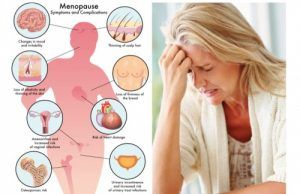Women’s health is a critical aspect that requires attention and regular medical check-ups. There are various health conditions that affect women, including both physical and mental disorders. In this article, we will explore some of the most common women’s health conditions and potential treatments available.
1. Polycystic Ovary Syndrome (PCOS)
PCOS is a hormonal disorder commonly found in women of reproductive age. It results in irregular periods, excessive hair growth, weight gain, and infertility. Treatments for PCOS may include medications to regulate hormones, lifestyle changes such as a healthy diet and exercise, and fertility treatments if pregnancy is desired.
2. Urinary Tract Infections (UTIs)
UTIs are bacterial infections that primarily affect the urinary tract, including the bladder and urethra. Common symptoms include a constant urge to urinate, burning sensation while urinating, and cloudy urine. Treatment often involves antibiotics prescribed by a healthcare professional and increased intake of fluids to flush out bacteria.
3. Menstrual Disorders
Menstrual disorders can include irregular periods, heavy bleeding, or severe menstrual pain. These conditions can be caused by hormonal imbalances, polyps, fibroids, or other underlying health conditions. Treatment options may involve hormonal therapies, contraceptive methods, pain relief medications, or surgical procedures depending on the specific case.
4. Breast Health
Breast health is essential for women, as they are at a higher risk of developing breast cancer. Regular breast self-examinations, mammograms, and clinical breast exams are crucial for early detection. Treatment for breast cancer may involve surgery, chemotherapy, radiation therapy, or hormone therapy, depending on the stage and severity of the cancer.
5. Mental Health Disorders
Mental health conditions such as depression, anxiety, and eating disorders can significantly impact women’s overall well-being. Seeking therapy, counseling, or medication can help manage these conditions effectively. It is crucial to prioritize mental health and seek professional help when necessary.
6. Osteoporosis
Osteoporosis is a condition that weakens bones, making them more prone to fractures. Women are at a higher risk of developing osteoporosis, especially after menopause. Treatments may include lifestyle changes like regular exercise, a calcium-rich diet, and supplements. Medications may also be prescribed to slow down bone loss and reduce the risk of fractures.
7. Reproductive Health
Issues related to reproductive health, such as fertility problems, endometriosis, or uterine fibroids, can affect women at different stages of life. Treatments can range from hormonal medications, surgeries, or assisted reproductive technologies to help women achieve their reproductive goals.
Women’s health conditions require understanding, support, and appropriate medical care. Regular check-ups, early detection, and timely treatments can ensure the well-being and quality of life for women. It is essential to stay educated about these conditions, maintain a healthy lifestyle, and consult healthcare professionals for personalized advice and treatment.

